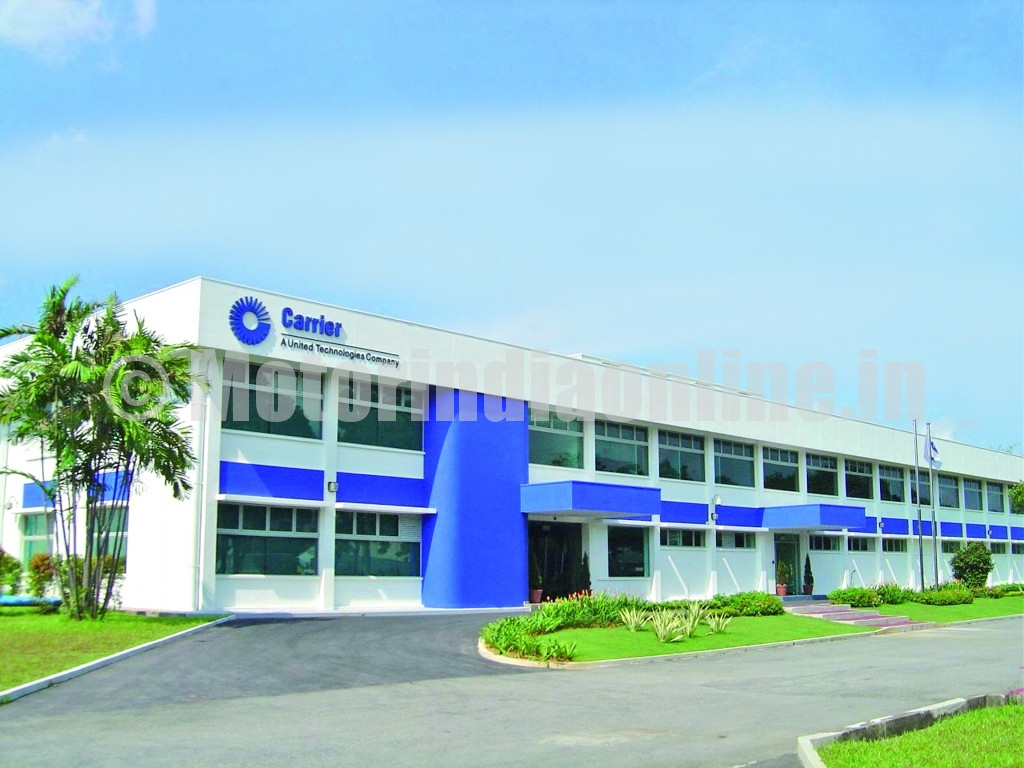Company geared to tap market potential
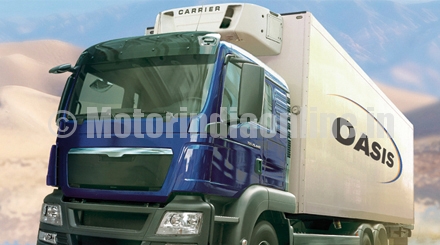
For more than 40 years, Carrier Transicold has been an industry leader, providing customers around the world with the most advanced and energy efficient equipment and services for refrigerated transport and cold chain visibility. With the Indian food industry poised for significant growth, it represents an important business opportunity for Carrier Transicold. We get an exclusive update from Mr. Ashok Mirchandani, Managing Director, Asia – Pacific, Carrier Transicold.
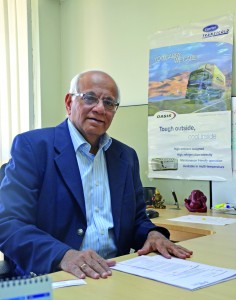
Carrier Transicold, part of United Technologies Climate, Controls & Security, is a leading global provider of refrigerated transportation in trucks, trailers and vans for on-road movement of fresh and frozen food, pharmaceuticals and other. It also serves nearly every major shipping line in the world, and has sold more than 900,000 refrigerated container units since 1968. The company has manufacturing operations in Athens, Ga., USA; Rouen, France; Shanghai, China; and Singapore.
Carrier Transicold’s Indian operations have grown steadily since its entry in 1993. India has gone through tremendous developmental changes in the last few years, which has helped Carrier exhibit the quality of its products and services. Says Mr. Mirchandani: “When Carrier entered into India, trucks had low engine power while the insulation of the reefer boxes was limited. Refrigeration units needed to have higher cooling capacity. Today, the segment has transformed in a big way owing to better quality equipment all around, and an increasing number of discerning customers who are interested in reducing operating costs.”
Until a few years back, the customers had to source the vehicle chassis, truck and refrigerated body from different vendors. Today, all the commercial vehicle manufacturers in India are involved in projects for fully-built reefer trucks. Carrier is working with all the OEMs to supply the reefer equipment. In terms of technology, too, there have been major advancements in the field with customers keeping track of the reefer temperature throughout the journey using GPS and remote sensing.
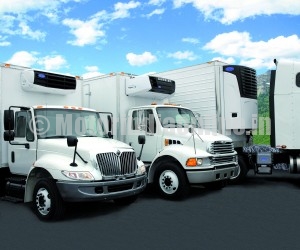
Versatile product range
Carrier Transicold products cover the complete range of customer requirements and integrated cold chain management from the smallest distribution van to large 12-meter trailers, and are designed to operate in ambient temperatures ranging from -30 to +50 Celsius, in both single temperature and multi-temperature versions.
Carrier offers products that are either self-driven with a dedicated engine or driven by the vehicle engine. Though the latter is limited by the vehicle engine power, it is suitable for chilled products in temperatures ranging from zero to 20 degrees Celsius. The demand for products of this type is growing rapidly, driven by the trucks and light commercial vehicle (LCV) segments. Carrier offers three products in this segment – Citimax™, Viento™ and Xarios™.
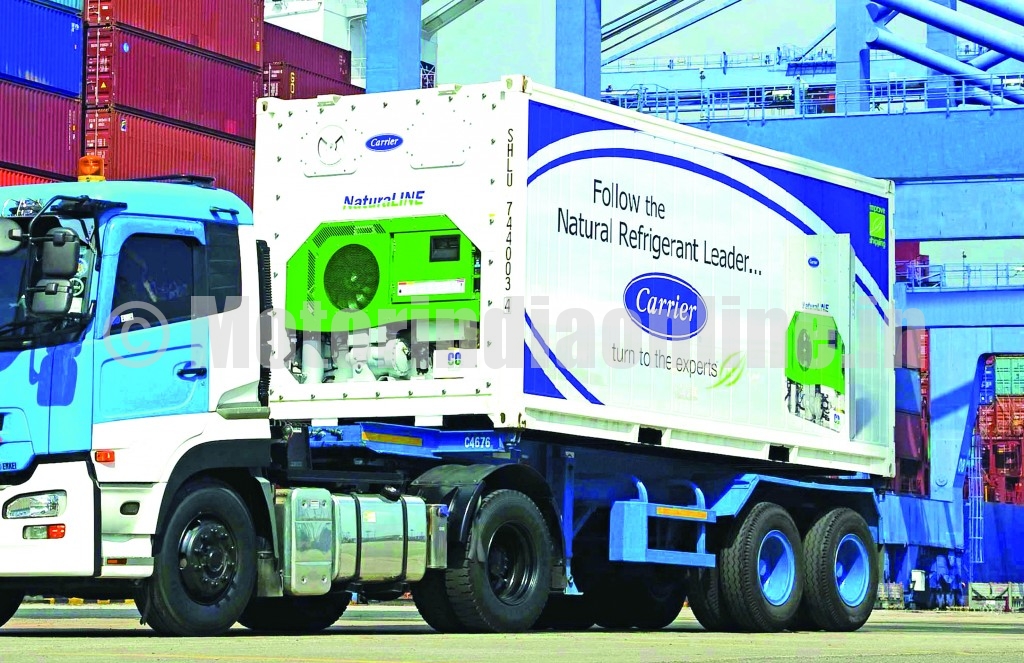
The other class of products comes fitted with an engine and is fed with diesel either from the vehicle or from a dedicated diesel tank. These products have the capacity to cool down 32 ft-long vehicles to -20 degrees Celsius. Carrier’s Oasis™ range for large trucks is specially designed for environments with hot desert and tropical conditions such as India and the Middle East, and can run in temperatures as high as 55 degrees Celsius. The products in this range are designed to provide strong and reliable performance in hot, dusty, ambient conditions and offer superior pull down and cooling efficiency.
In the global container business, Carrier introduced the PrimeLINE® digital scroll container unit, an industry leader inenergy efficiency in 2007. In 2011, it unveiled the Pulsor™ refrigeration unit for light commercial vehicles, featuring E-Drive™ all-electric technology. The company’s innovations also include the NaturaLINE™ container refrigeration unit, the first in the industry to use natural refrigerant carbon dioxide (CO2).
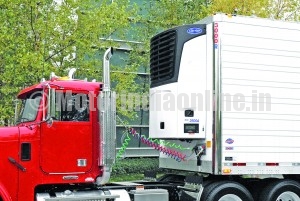
Aftersales Support
Carrier Transicold provides an extensive network of aftermarket services and components for its products, with more than 33 authorized service centers and parts depots in India, located primarily along the main highway routes and transport hubs. “Aftersales service is very important in this segment, particularly timely service because of the temperature sensitive cargo. Customers understand the need for quality service and the use of genuine spare parts. Training is another important aspect we focus on. We have 33 partners, all of whom have been trained and certified by us,” Mr. Mirchandani adds. Carrier field supervisors oversee dealer operation, backed by experienced technical and application engineering personnel at the Bangalore head office.
In addition to its sales and distribution head office and regional office in Bangalore, Carrier Transicold India operates regional offices in Delhi and Mumbai. The company plans to expand its service network across the country and works to develop the technical capability of its service partners to support customers during regular maintenance and service. Carrier conducts regional training sessions that focus on basic equipment maintenance and product knowledge, to ensure the dealerships and technicians stay updated with the latest products, technology and services.
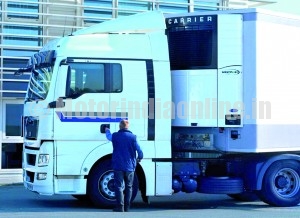
Promising future
With a number of multinational food chains setting foot in India, the need for maintaining the quality of fresh and frozen food has risen, which has paved the way for adoption of better technology. FDI in retail is already around the corner and is likely to be implemented in the near future. The Indian government is also working on a food safety and security bill which would further strengthen the country’s cold chain and reduce the amount of food wastage, which currently stands at a staggering 30 per cent of the estimated 170 million metric tons of perishable produce of fruits and vegetables.
Carrier Transicold is optimistic about the cold chain industry in India and is focused on the long-term potential India holds. With a lot of initiatives and policies heading in the right direction, Carrier is poised toplay a leading role in India’s cold chain industry in the coming years. “Eliminating food wastage is the key for India and we are optimistic that it will happen in the near term. There is growing focus on developing the cold chain industry and with the entry of FDI in retail and more importantly ‘organized’ retail, things can onlyimprove,” adds Mr. Mirchandani.
The percentage of movement of fruits and vegetables through the cold chain in the US is approximately 80 to 85 per cent, whereas the level in Thailand is 30 to 40 per cent as compared to negligible in India. In India, out of the 104 million tonne of perishable produce, only four million tonnes moves through refrigerated transport, out of which two million is exported. This leaves 100 million tonnes of perishables available for refrigerated transportation, which is a whopping number.
It is a fact that the cold chain industry in India is nascent. With the kind of rapid development in road infrastructure and vehicle performance, coupled with the fast-changing lifestyle of the Indian population, there is an impending boom in the cold chain segment, and Carrier seems well positioned to be able to respond favorably to increasing demand and regional requirements.
